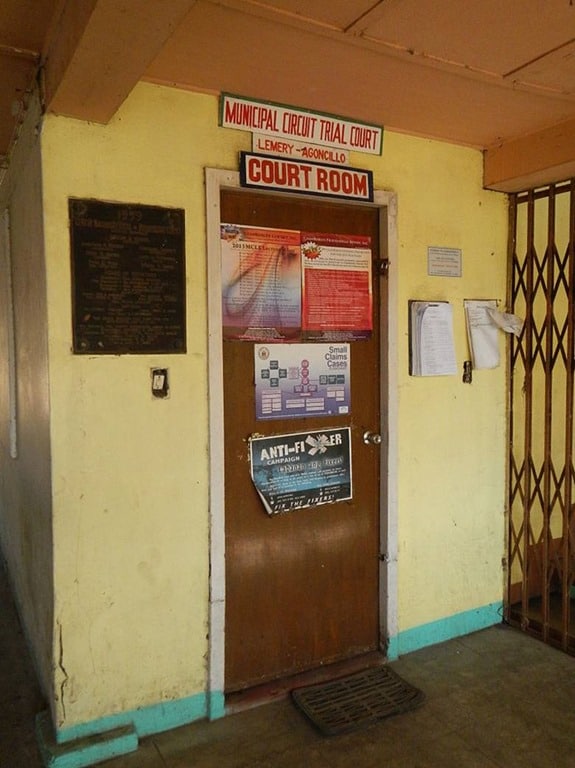Among the many provisions buried in the gargantuan 5,500-page COVID-19 stimulus relief and government-funding bill signed into law in December is one that creates a new small claims court for copyright matters.
The Copyright Alternative in Small-Claims Enforcement Act (“CASE Act”) revises the Copyright Act, 17 U.S.C. §§ 101 et seq. and creates a Copyright Claims Board (CCB) within the US Copyright Office.
According to the Copyright Alliance,
Most professional creators and small businesses cannot afford to enforce their rights when someone infringes their copyrighted works. The CASE Act is intended to address these obstacles by creating a voluntary and affordable alternative to federal court for small copyright claims.
The CCB will be operational by December 27, 2021, unless the Copyright Office seeks a 180-day delay.
The following types of claims may be heard by the CCB:
- Copyright infringement claims
- Declarations of non-infringement of copyright
- Claims for failure to remove or disable access to allegedly infringing content after notice-and-takedown procedures under the Digital Millennium Copyright Act (DMCA) have been followed
- Misrepresentation in connection with a DMCA claim
- Counterclaims relating to the above
- Defenses such as first sale and fair use
Hearings will be conducted by panels of three administrative officers, rather than by a judge. Parties can decide whether to use the CCB or the normal federal course system, but they must affirmatively opt-out of the CCB process in order to preserve their right to sue in federal court.
Failure to opt-out of a CCB proceeding within 60 days of being served with a notice of claim will serve as a defendant’s consent to the CCB proceeding. Parties using the CCB waive their right to a jury trial and to normal motion practice.
The CCB may not award more than $15,000 in statuary damages per copyrighted work, no more than $30,000 in total actual or statutory damages, and no more than $5,000 in attorney’s fees in cases of bad faith unless a party can present evidence of extraordinary circumstances.
Works registered with the Copyright Office before infringement or within three months of first publication will be eligible for the statutory damages noted above. Works that weren’t registered before infringement will only be eligible for damages of up to $7,500 per work and $15,000 in total.
The CCB may not consider whether the infringement was “willful,” but may take into consideration whether the infringer has agreed to “cease or mitigate the infringing activity.”
The CCB may not issue injunctions or orders impounding infringing goods.
The CASE Act gives the CCB authority to prevent abuses by so-called “copyright trolls” by barring any party who litigates in bad faith from bringing a claim before the Board for twelve months.
“Bad faith” is defined as bringing a claim or counterclaim or raising a defense “for a harassing or other improper purpose, or without a reasonable basis in law or fact.”
The CCB can also limit the number of claims a party can bring in a year.
If a party fails to pay damages or comply with the CCB’s rulings, the other party has one year to seek an order from a federal court ordering compliance.
Parties may appeal CCB decisions to a limited extent, asking for reconsideration by the Register of Copyrights on grounds of abuse of discretion. Decisions can be appealed to a federal court only if:
- the CCB’s decision resulted from fraud, misrepresentation, or other misconduct,
- the CCB exceeded its authority or failed to make a final determination, or
- the CCB’s decision was based on a default or failure to prosecute due to excusable neglect.
Parties based outside the US can’t be served in a CCB matter, but they can initiate CCB cases.
Some commentators believe that the CASE Act will increase the number of copyright infringement claims brought, for several reasons:
- Filing fees are lower than in federal court
- Discovery is limited
- Rules of evidence don’t apply
- Board decisions have limited precedential impact
- Proceedings are completely remote
- Recovery of attorney’s fees by the prevailing party is limited
All of these factors will seemingly make CCB cases faster, cheaper, and less risky than copyright litigation in federal court. Whether this will encourage questionable claims remains to be seen.
Just like the haiku above, we like to keep our posts short and sweet. Hopefully, you found this bite-sized information helpful. If you would like more information, please do not hesitate to contact us here.


